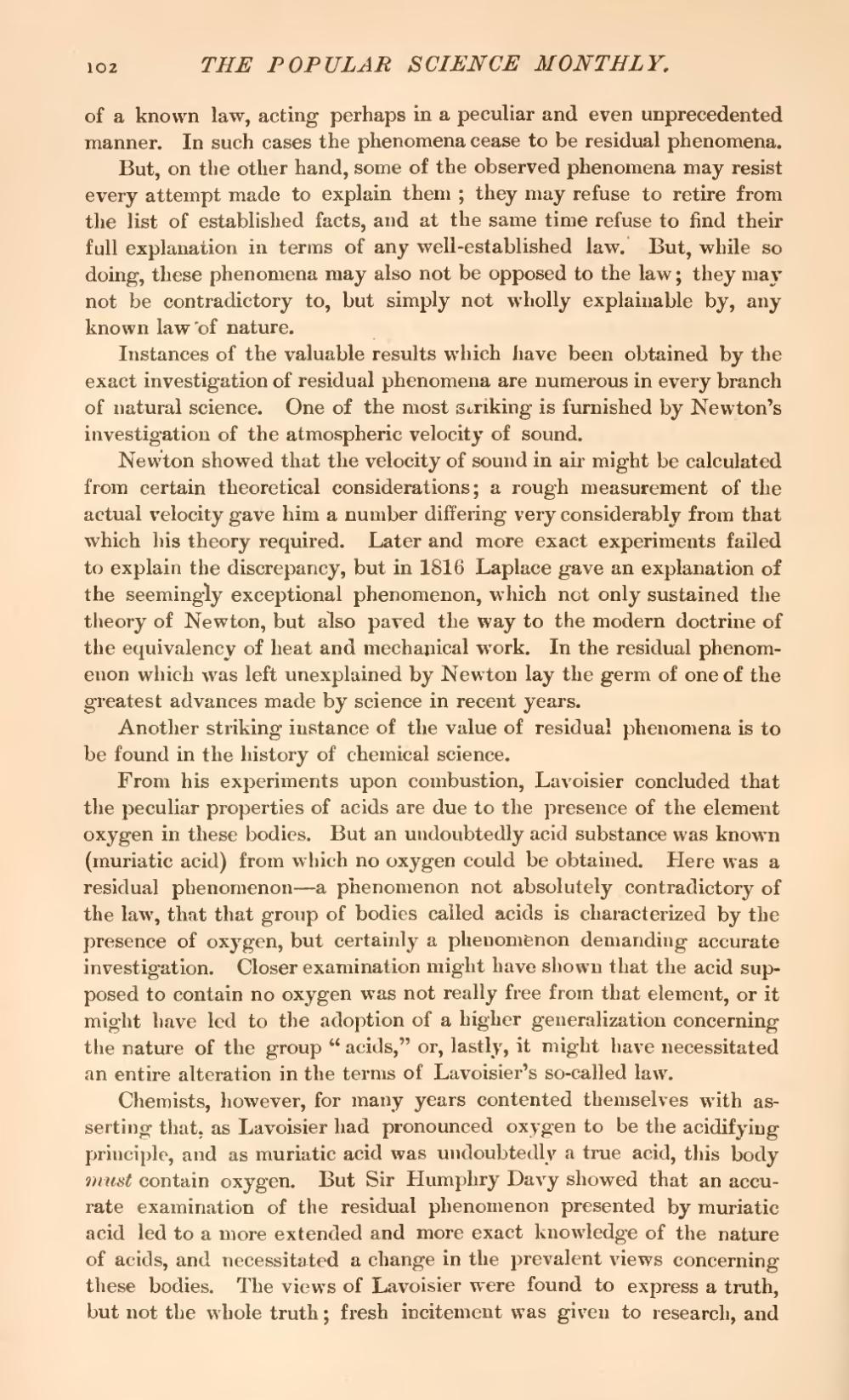of a known law, acting perhaps in a peculiar and even unprecedented manner. In such cases the phenomena cease to be residual phenomena.
But, on the other hand, some of the observed phenomena may resist every attempt made to explain them; they may refuse to retire from the list of established facts, and at the same time refuse to find their full explanation in terms of any well-established law. But, while so doing, these phenomena may also not be opposed to the law; they may not be contradictory to, but simply not wholly explainable by, any known law of nature.
Instances of the valuable results which have been obtained by the exact investigation of residual phenomena are numerous in every branch of natural science. One of the most striking is furnished by Newton's investigation of the atmospheric velocity of sound.
Newton showed that the velocity of sound in air might be calculated from certain theoretical considerations; a rough measurement of the actual velocity gave him a number differing very considerably from that which his theory required. Later and more exact experiments failed to explain the discrepancy, but in 1816 Laplace gave an explanation of the seemingly exceptional phenomenon, which not only sustained the theory of Newton, but also paved the way to the modern doctrine of the equivalency of heat and mechanical work. In the residual phenomenon which was left unexplained by Newton lay the germ of one of the greatest advances made by science in recent years.
Another striking instance of the value of residual phenomena is to be found in the history of chemical science.
From his experiments upon combustion, Lavoisier concluded that the peculiar properties of acids are due to the presence of the element oxygen in these bodies. But an undoubtedly acid substance was known (muriatic acid) from which no oxygen could be obtained. Here was a residual phenomenon—a phenomenon not absolutely contradictory of the law, that that group of bodies called acids is characterized by the presence of oxygen, but certainly a phenomenon demanding accurate investigation. Closer examination might have shown that the acid supposed to contain no oxygen was not really free from that element, or it might have led to the adoption of a higher generalization concerning the nature of the group "acids," or, lastly, it might have necessitated an entire alteration in the terms of Lavoisier's so-called law.
Chemists, however, for many years contented themselves with asserting that, as Lavoisier had pronounced oxygen to be the acidifying principle, and as muriatic acid was undoubtedly a true acid, this body must contain oxygen. But Sir Humphry Davy showed that an accurate examination of the residual phenomenon presented by muriatic acid led to a more extended and more exact knowledge of the nature of acids, and necessitated a change in the prevalent views concerning these bodies. The views of Lavoisier were found to express a truth, but not the whole truth; fresh incitement was given to research, and
